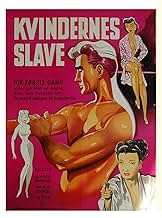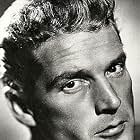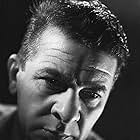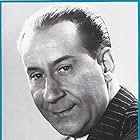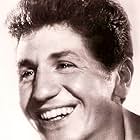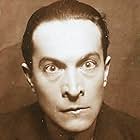Unlike his former colleagues,Roger Richebé was slagged off,not by the young Turks of the Nouvelle Vague ,but by one of the greatest writers of the Old Wave :Henri Jeanson.Everybody thought that he was right and now nobody wants to see Richebé's movies.And however...
I saw a handful of his movies and I was never disappointed:at least five of them would deserve to be watched: "Madame Sans-Gene " ,"Les Amants de Minuit" ,"Monseigneur","l'habit vert"...
....and "Gibier De Potence" (=Gallows Bird) !This film proves that Richebé's bad reputation is totally unfair.This is a great work,extremely daring for the time!
A soldier,Marceau, comes back from WW2.An old man tells him "There were not many dead soldiers in this war,were there?".A line which would not be out of place in Wyler's "Best years of our lives". He remembers ....(Long flashback) he was an orphan and was raised by priests ...No childhood ...When he left the orphanage ,he was short of the readies.Then he met Madame Alice:she made him a model for pornographic photographs disguised as "art" and a gigolo for lonely aging women..That's the main originality of the movie.What happens to the hero is what happened generally to girls at that time."White male slave trade" he says.
But there's more to the picture than meets the eye:Madame Alice,played by fabulous Arletty ,is a spellbinding mysterious woman.The audience expects her to sleep with her protégé but nothing happens.The relationship is very uneasy,certainly perverse and leaves the viewer ill-at-ease."Who are you? Marceau asks.you are not feminine,you do not wear any jewels.Are you.....? Terse answer :"No,I do not like women either".A revelation tells us that something happened in Madame Alice's childhood too.Georges Marchal (who was good friend with Luis Bunuel who gave him his two best parts "La Mort en Ce Jardin" and "Cela S'Appelle l'Aurore" ) portrays this unfortunate hunk with great conviction.
He's caught in a cobweb ,and Madame Alice makes me think of a Black Widow.After the war, he tries to pick up the pieces and to start a "pure" brand new life but she is not prepared to accept it which is all the more disturbing as there is no sex at all between them.When he meets a pure young girl (Nicole Courcel),both of them swim in the nude in the pool (which was quite unusual in 1951 in the French cinema).It's like a new "christening " for him.
Marceau's longing for purity finds its roots in his friendship with one of his pals in the orphanage .When he leaves him -the poor lad who wants to become a priest soon dies from TB- he warns Marceau:"stay true to yourself,stay pure".Priests play a prominent part:Marceau comes back to his orphanage and he is so hungry he wants to take a piece of bread ,but he is too proud to do that in front of the man who was some kind of father to him.Later,in the strange mansion where the plot is resolved,he meets another priest (who 's afraid of dying: "and however",Marceau says" you are a believer")with whom he strikes up a bizarre relationship.
Two famous French critics Jean Tulard and Jacques Lourcelles have recently praised "Gibier de Potence" .




